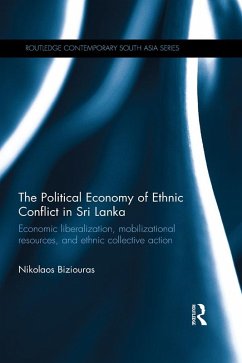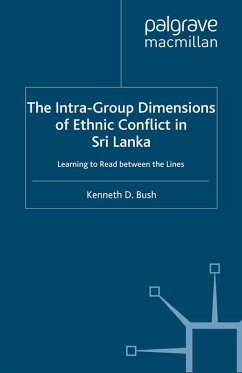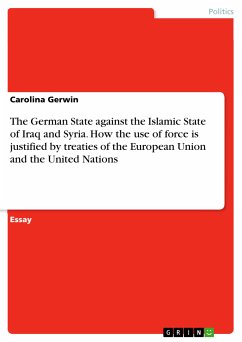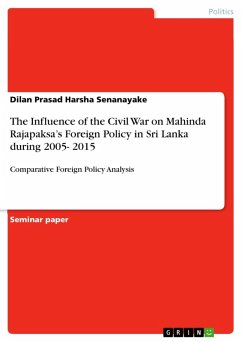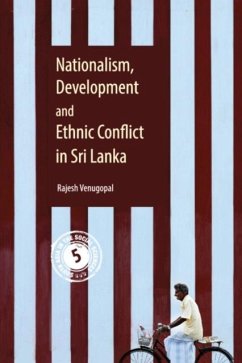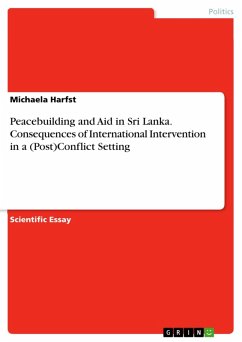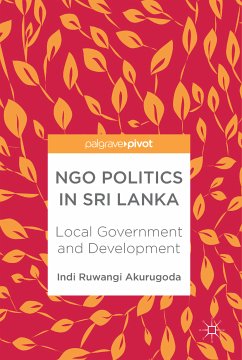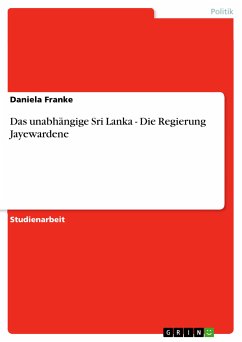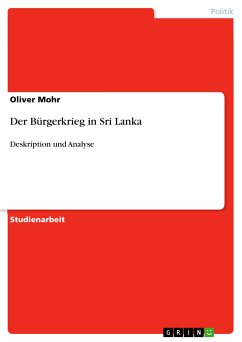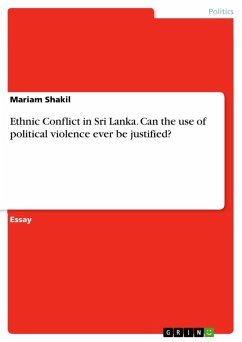
Ethnic Conflict in Sri Lanka. Can the use of political violence ever be justified? (eBook, PDF)
Sofort per Download lieferbar
Statt: 17,95 €**
13,99 €
inkl. MwSt. und vom Verlag festgesetzt.
**Preis der gedruckten Ausgabe (Broschiertes Buch)
Alle Infos zum eBook verschenkenWeitere Ausgaben:

PAYBACK Punkte
0 °P sammeln!
Essay from the year 2020 in the subject Politics - International Politics - Region: South Asia, grade: 80%, University of St. Gallen, course: Politics of Religion in South Asia, language: English, abstract: "Never think that war, no matter how necessary, nor how justified, is not a crime." Words were written by Ernest Hemingway depicting the vile nature of war, while strengthening the narrative that war is groundless. Much like Hemingway, many others also share the same view on the atrocious aspects of war itself. Warfare has been witnessed in all parts of the world for centuries. Through the ...
Essay from the year 2020 in the subject Politics - International Politics - Region: South Asia, grade: 80%, University of St. Gallen, course: Politics of Religion in South Asia, language: English, abstract: "Never think that war, no matter how necessary, nor how justified, is not a crime." Words were written by Ernest Hemingway depicting the vile nature of war, while strengthening the narrative that war is groundless. Much like Hemingway, many others also share the same view on the atrocious aspects of war itself. Warfare has been witnessed in all parts of the world for centuries. Through the study of history, we are aware of the evolution of methods of warfare. International humanitarian law has helped guide nations to "legitimately" conduct acts of war against others. The toughest pill to swallow though, however obvious, is that one aspect of war will always be inevitable - the casualties. This consequently results in the majority view that war is good for nothing. Then the vital question that must be addressed is that if the effects of violence constitute more harm than good, why is it an available option for nations to resort to? Furthermore, why does the law of war differ for state and non-state actors? In this essay, I would like to examine the conditional nature of war within the international sphere by paying close attention to the Sri Lankan Civil War (1983-2009) as an example to portray the disparities of armed conflict between state and non-state actors, and how the view of such acts are deemed differently through the use of the "Just War" theory.
Dieser Download kann aus rechtlichen Gründen nur mit Rechnungsadresse in A, B, BG, CY, CZ, D, DK, EW, E, FIN, F, GR, HR, H, IRL, I, LT, L, LR, M, NL, PL, P, R, S, SLO, SK ausgeliefert werden.




